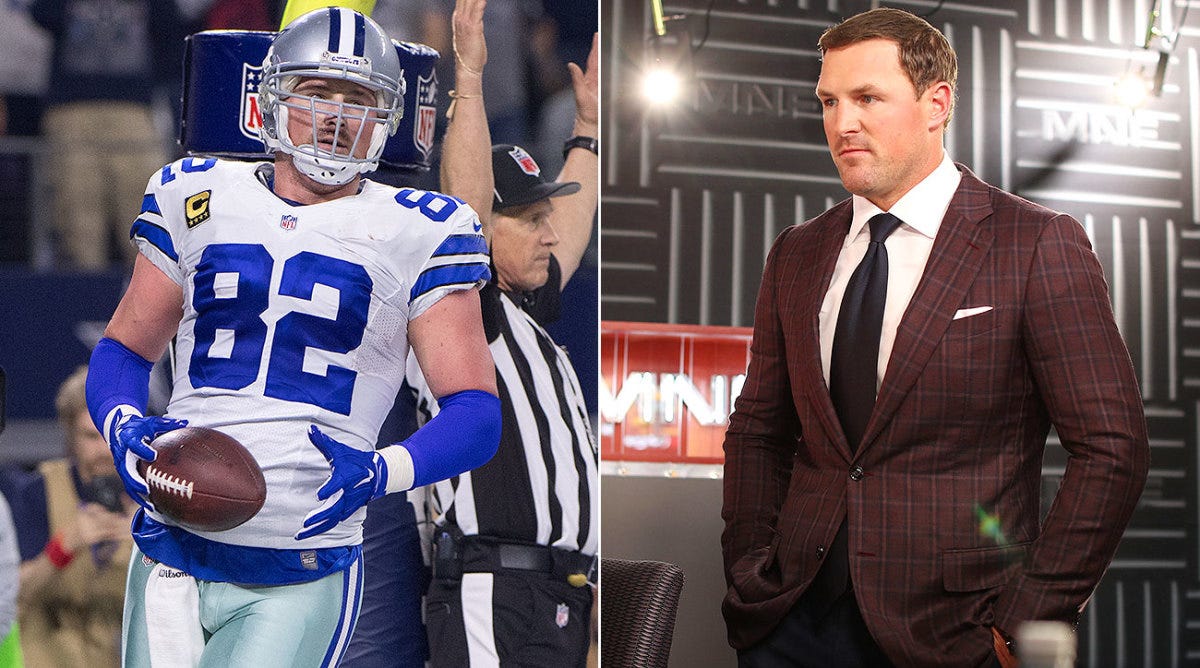Why most NFL players don't become coaches
Richard Sherman says he wants to get into coaching...eventually: Seaside Joe 1807
During their careers, some players often hear that they should get into coaching, others are told that they would do great in broadcasting, and one of them became The Rock. (After a really short stint on a CFL practice squad.) Richard Sherman was one of the few who retired after an 11-year career with options.
Not many NFL players had the awareness to take advantage of a microphone during the rare times when a sideline reporter would stick one in your face during your career if you’re not a starting quarterback or head coach, but Sherman was candid about the rage that fueled him to three Super Bowls and five All-Pro appearances on first or second team.
Maybe a little too fueled.
It’s not a hard argument to make that Richard Sherman was a much better football player than analyst, panelist, or podcaster. With adrenaline coursing through his veins after swatting Michael Crabtree, Sherman proved to be an athletic poet. Across from Skip Bayless or $100-smiling on Amazon Prime, Sherman has to rely on a different kind of wit and I mostly forget that he’s actually working in media now; I had forgotten that Sherman was hired to replace Shannon Sharpe on “Undisputed” months ago until researching this article because I don’t watch it and nothing that has happened on that show since has ever come into my newsfeed.
What little I’ve seen seems to just use Sherman as a voice to comment on the San Francisco 49ers or Seattle Seahawks.
For me, Sherman comes across as flat, basic, and most surprisingly of all, timid. Which is probably still better than making the Emmanuel Acho mistake of “If I just talk in a loud void, it’ll sound like I’m right”, but this is definitely not the Sherman who I grew up with and far from the player I expected could be the next Shannon Sharpe or the NFL’s version of Charles Barkley.
I know how polarizing players-turned-media are for fans, whether that’s Cris Collinsworth, Tony Romo, or Dan Orlovsky…that’s why I won’t tell you right now which of those guys I like and the one I can’t stand…but there’s a skill to it that can’t be coached. That’s why most are hired, given short-term trial runs on the NFL Network or ESPN, and then disappear to become long forgotten.
Love them or hate them, former players like Sharpe and Pat McAfee have gotten rich (again) off of speaking about the game. Sherman’s podcast on YouTube is just sort of “there” for now, sometimes attracting fewer viewers than Seahawks bloggers who do this as a hobby. Maybe that will change over time, but if it doesn’t then that’s when Sherman could choose path two: Coaching defensive backs with an intent to do for them what Pete Carroll and Kris Richard—himself a former player turned coach—did for him.
The only thing that would seem to hold him and many other former players back from turning to coaches, which is one of the most common questions and requests I see from fans (“I wish Walter Jones would coach the offensive line,” etc.), is that the job would seem to…really suck.
Especially right now in the age of podcasts and YouTube.
In a recent episode of his show, Richard Sherman gave his thoughts on Seattle’s decision to fire Pete (which he didn’t support) and hire Mike Macdonald (who he thinks is good), as well as on the business of coaching. After saying that “millennials” (Sherman, YOU are a millennial! I believe you’re thinking of Gen Z) are too “soft” for old-school hard-nosed coaches like Nick Saban or Eric Bieniemy, Sherman shares his thoughts on having a coaching career:
“I don’t ever want to coach college. I don’t know if I ever want to coach at all. Maybe in 10 years when I’m done saying what I want to say abou the league, I’ll give coaching a shot.”
I don’t know how to break it to you, Sherm, so I’ll be blunt: You might currently be done saying what you’re gonna say about the league. What are you saying about the league? What did you say? Say it NOW, time is running out!

